[ad_1]
Twelve years ago, Marissa Engoy, owner of the plant business Good Morning, Cactus, suffered a miscarriage. For days, she struggled to get out of bed. That’s when a friend brought her some succulents as a gift. She’d never seen a succulent before that day, but was drawn to their adorable, chubby, cartoon-like appearance.
“I never really cared about plants before, but suddenly I cared about these ones with all my heart,” says Engoy, 42. “I needed them to survive.”
Caring for those succulents and knowing they were dependent on her to survive helped her through that difficult time in her life.
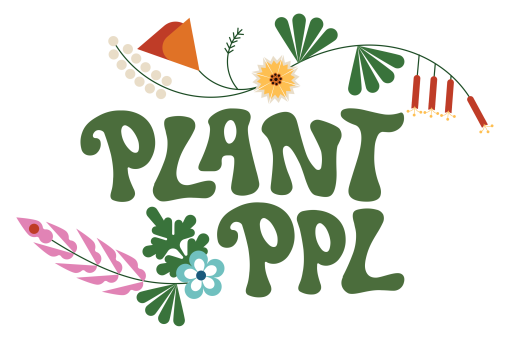
In our Plant PPL series, we interview people of color in the plant world. If you have suggestions for PPL to include, tag us on Instagram @latimesplants.
She soon began to grow her collection of succulents, she says, making “too many” trips to Home Depot to buy more. She started researching plants and checking out books from the gardening section of her local library when she came across some of Debra Lee Baldwin’s books on making living art using succulents. Engoy says she was inspired by the work of the San Diego-based gardening author and horticulturalist who specializes in succulents, so she began making her own arrangements as a hobby. She also traveled to Portland, Ore., to study under Françoise Weeks, a Belgian artist known for her living botanical art.
“The plants were a gift from God to usher me out of that dark season,” Engoy says.
She began posting photos of her arrangements on social media. Her posts gained some traction, and the Torrance resident found herself immersed in the online plant community. For a couple of years, she sold plants and arrangements on Etsy and at local markets in Los Angeles and Orange County.
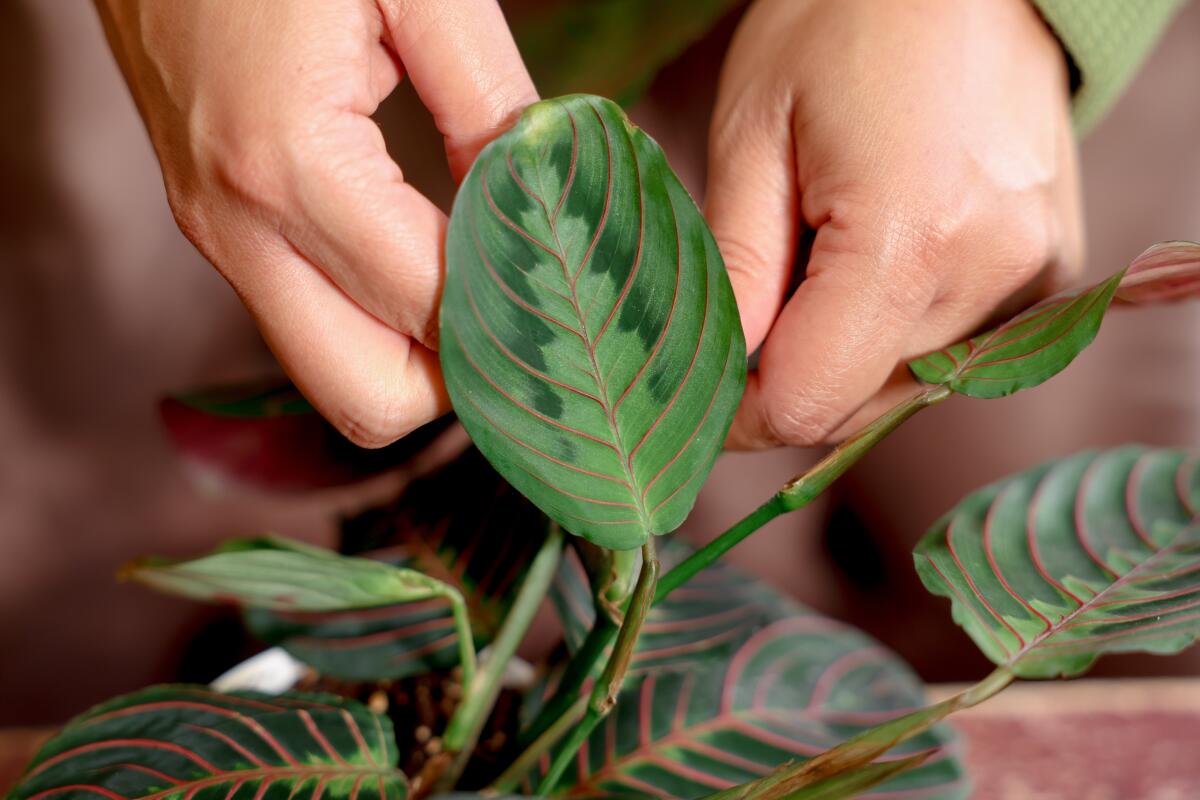
Marissa Engoy prunes a Maranta leuconeura at the Golden Triangle shop.
(Dania Maxwell / Los Angeles Times)
That’s when the former third-grade teacher named her business Good Morning, Cactus. She says the name came organically.
“I was looking at one of my cactuses one day and I was just like, ‘Hey, good morning, cactus! Good morning, you little prickly punk!’ And it stuck.”
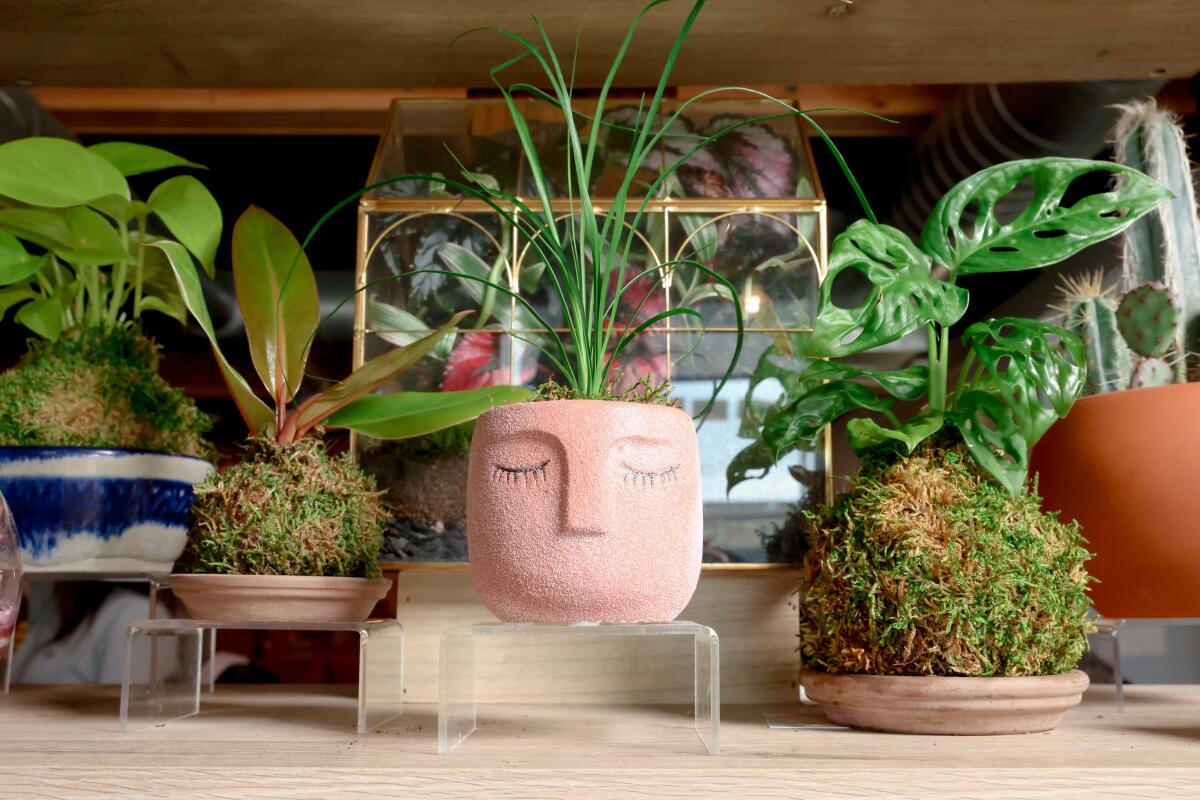
Good Morning, Cactus plants are on sale at Corridor Flow in Lomita.
(Dania Maxwell / Los Angeles Times)
Today, she has partnerships with two storefronts in Lomita, which are located across the street from each other: Corridor Flow, a coffee shop known for its Spanish lattes, and the the Golden Triangle, a sustainability-focused boutique. She has also partnered with the Aloha Bungalow, a beachy gift shop in Redondo Beach. Engoy, her husband Derrick and her three children love to surf, so the Aloha Bungalow’s location makes for an ideal day.
“I’ll go surf in the morning, get cleaned up and then water my plants at that shop,” she says. “It’s been such a sweet celebration of life.”
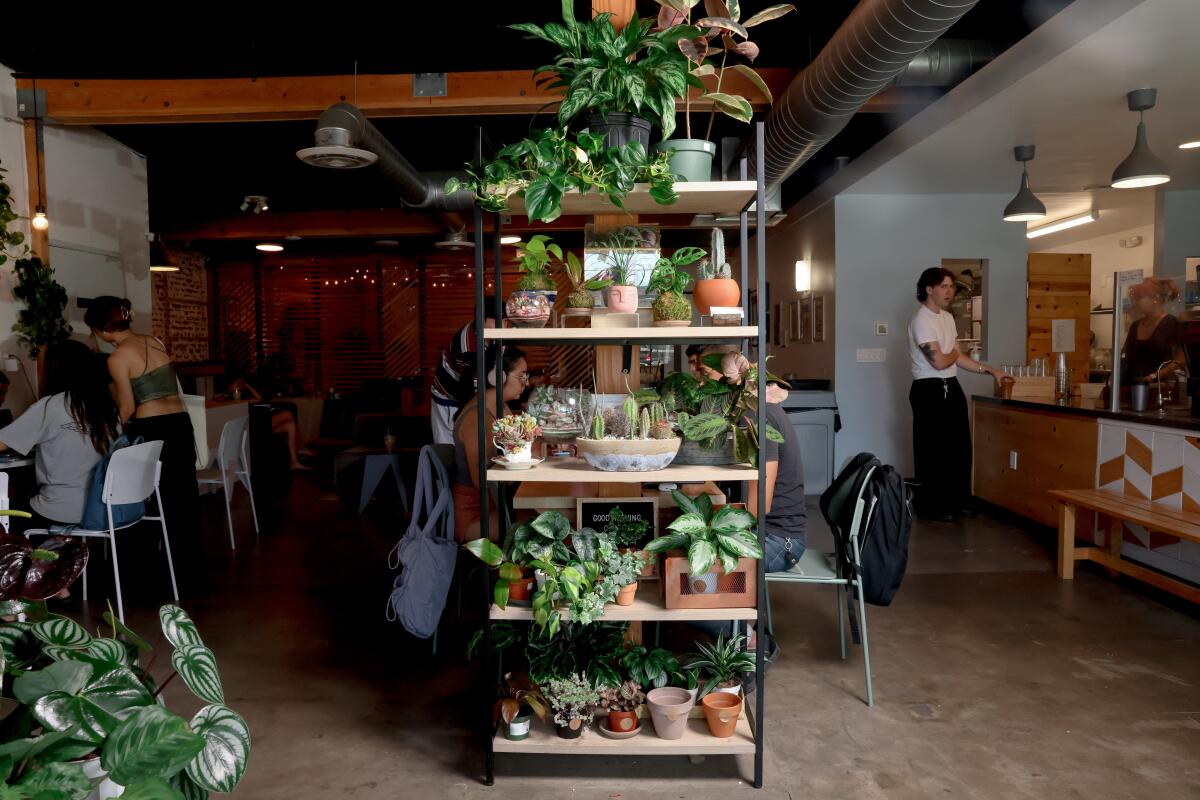
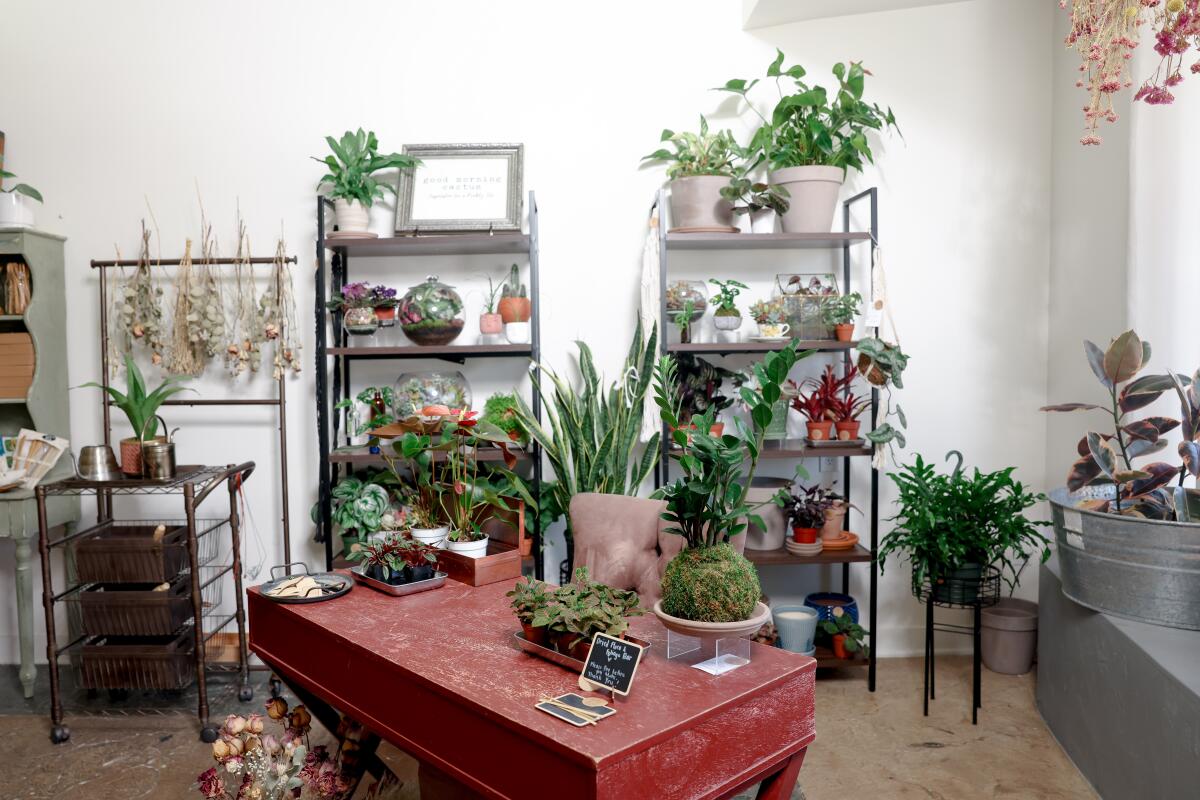
Good Morning, Cactus plants are on sale at Corridor Flow in Lomita. At another Lomita spot, the Golden Triangle, items from Marissa Engoy’s brand are on display. (Dania Maxwell / Los Angeles Times)
Good Morning, Cactus sells a variety of plants at these stores including maranta lemon lime prayer plant, philodendron, watermelon peperomia (peperomia argyreia) and anthurium. She also sells arrangements including small succulents in vintage teacups, succulent wreaths, terrariums and kokedamas. Engoy, who’s Filipina, says Filipino customers often come in asking her for plants that are not “maarte,” the Tagalog word for “dramatic” or “high maintenance.”
She also hosts plant workshops and informational talks on topics such as succulent wreath arranging, terrarium building and plant maintenance in the Lomita shops.
Engoy says she has had workshops with nonprofit organizations including Changing Tides, an organization working toward ending the stigma around mental health in the Asian American community. She says it brings her joy to see people becoming connected and empowered through her workshops.
“My favorite thing is to connect with the community during workshops,” she says. “As cheesy as it sounds, the gift of community keeps this small business going.”
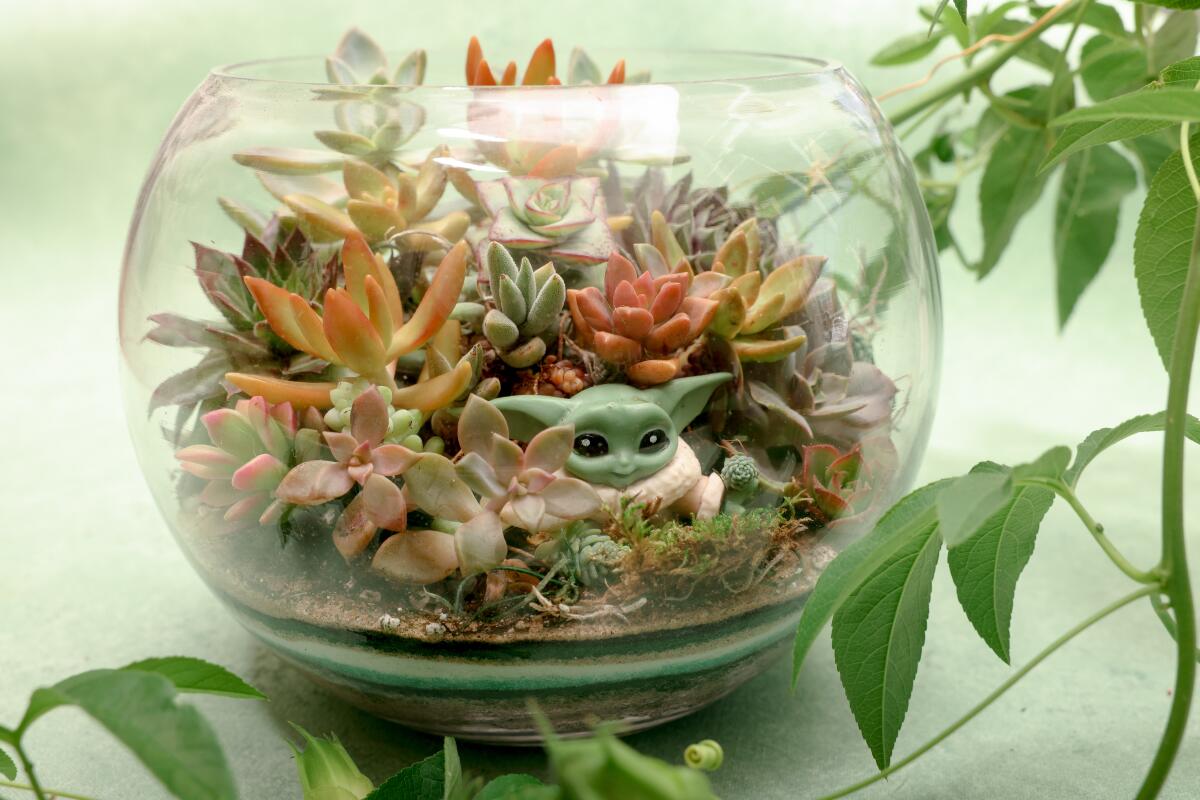
Succulent terrariums are one of the more popular items Marissa Engoy sells through her Good Morning, Cactus business.
(Dania Maxwell / Los Angeles Times)
Engoy’s path to becoming the woman who customers now affectionately call “the plant girl” wasn’t easy. She says she had to hustle every step of the way, crediting her strong work ethic to how her parents raised her.
Engoy’s parents got married in their home country of the Philippines in their early 20s and immigrated to the U.S. soon after in 1975. They started a catering business in Gardena when Engoy was in elementary school. Engoy remembers serving punch at weddings and putting toothpicks in fruit and sandwiches with her siblings to help out with the family business.
“I remember watching my parents and having so much respect for them,” Engoy says.
As for gardening, she says her mother has always been an avid gardener, and it’s a hobby that brings her incredible joy. The garden in her mother’s backyard is full of hummingbirds and the occasional bunny or raccoon. People — and animals — like to visit the garden because Engoy’s mother has made it into an oasis.
“It’s her therapy,” Engoy says, adding that her maternal grandfather was also passionate about gardening, creating makeshift waterfalls and tending to plants in the yard of his home in the Philippines. She says she remembers seeing his outdoor space as a safe haven when her family visited.
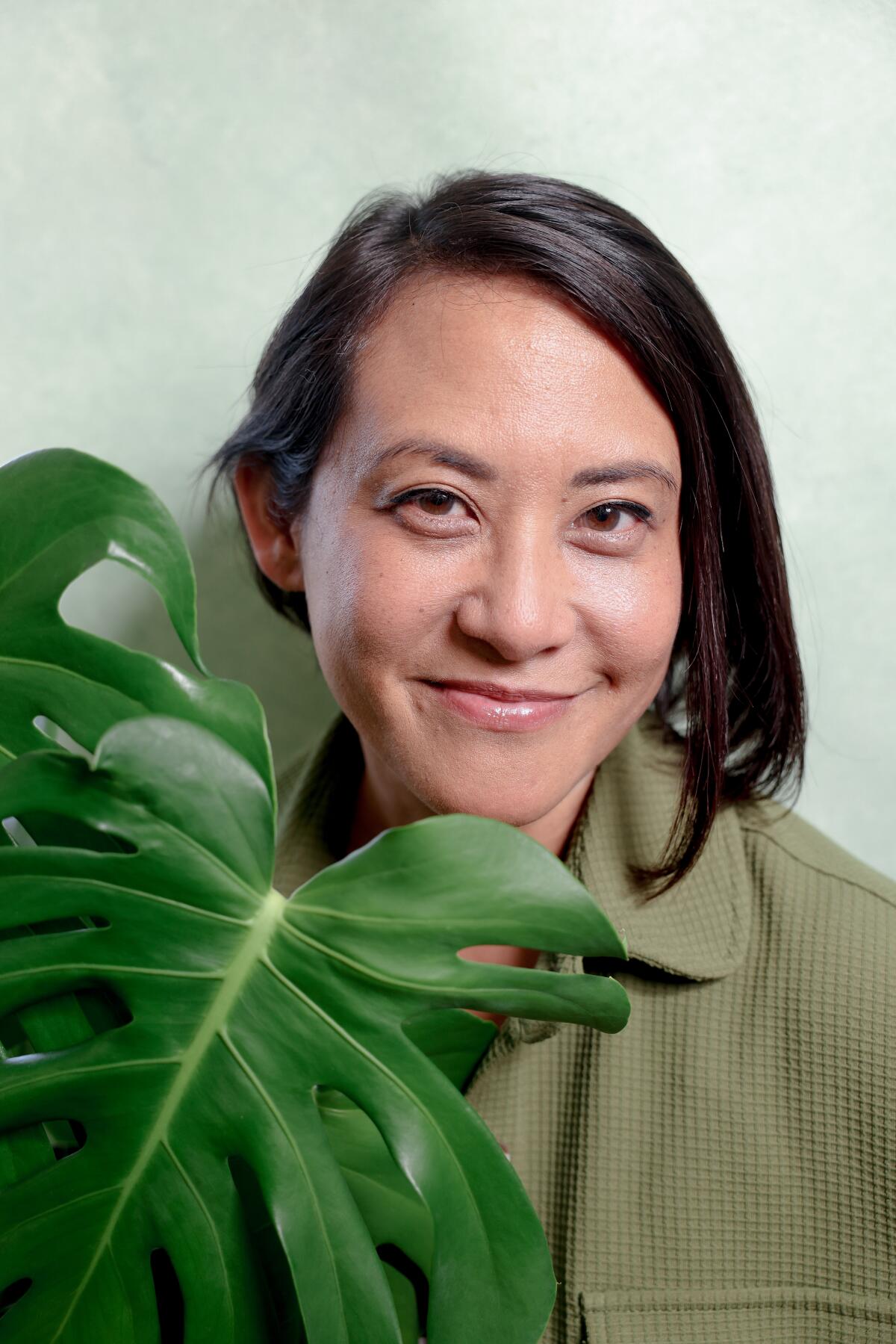
Marissa Engoy, owner of Good Morning, Cactus, holds a monstera plant.
(Dania Maxwell / Los Angeles Times)
When she discovered plants as a means to heal from her miscarriage, Engoy says something clicked in her head about her mother and grandfather. She realized that, although they were on different sides of the world, they both needed the same thing for their mental and physical health: to cultivate a beautiful place to escape.
“I was like ‘Oh, so this is why they did it,’” she says. “I know now that this is why I do it too.”
[ad_2]
Source link